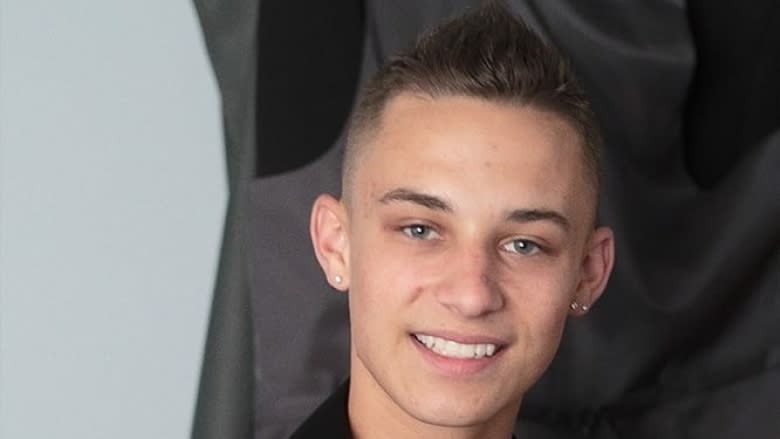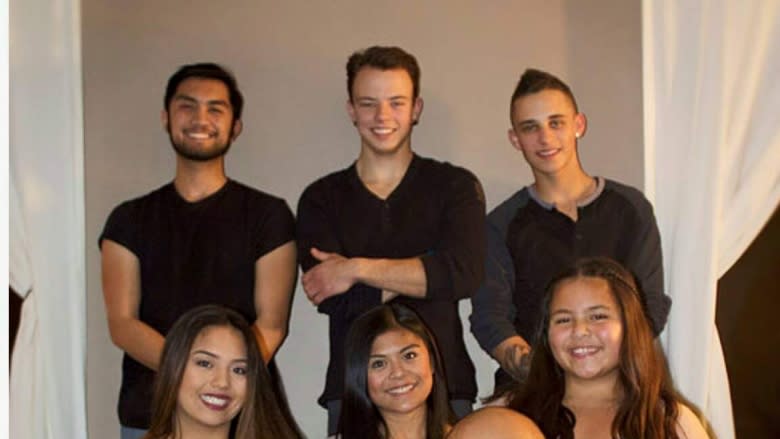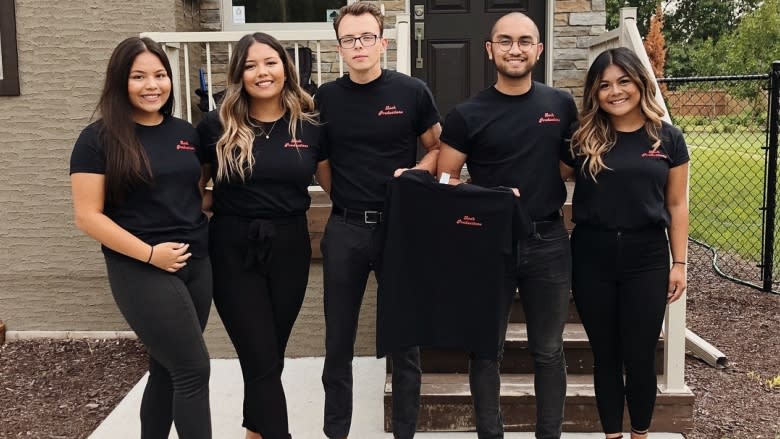Winnipeg family fights for more addictions support after losing son to suicide
The family of a young Winnipeg man who died by suicide last month are fighting for a health-care system where treatment for drug addiction and mental illness is as available as care for cancer or broken leg.
Jennifer Bautista spent the past two years of her life trying to get help for her son, Gabriel Pereira, 20, who was addicted to cocaine and methamphetamine.
"It's a monstrous disease that took over his body and his mind, and it needs to be something that's looked at like that," said his step-father, Rodell Bautista.
Pereira took his own life at home on July 29.
"It's something I know I'll never get over. I'll live with this forever — until it's my time," said his mother, Jennifer Bautista. "And I can't replace him, and I'll never get to see him get married and have children and do all the wonderful things he deserved to do.
"I wished someone helped me and helped my son. That's all I wished for. And now if doing this can help someone else, then I'm all for it."
'He was acting crazy'
For several months, Pereira had been spending days on end alone in his mother's basement. Cocaine had always been his drug of choice, says Bautista, but on the evening of July 19 he was high on meth.
"He was acting crazy. He was talking to himself and mumbling and being aggressive towards his sister and her boyfriend and things got out of hand," said Rodell Bautista.
He said Gabriel smashed his sister's boyfriend's car window with his foot: "We called the police because we were scared for our lives. We were scared that he was going to do something to himself."
The police took Pereira to Concordia Hospital and treated him for the injury on his leg. The family woke up the next morning to find him sleeping on the front porch, so Jennifer Bautista got a court order to have him taken to the psychiatric ward at the Health Sciences Centre. In her documentation for the order, she detailed his deteriorating state of mind, drug use and suicidal thoughts.
She was relieved when the unit admitted him. But the next day, she got a call saying he had been discharged. She says the psychiatrist told her her son's drug-induced psychosis would be better treated in rehab.
She says Pereira was muttering nonsense to himself as she walked with him out of the hospital.
"I was shocked because I was like, 'Did they not see this? Did they not care to see this?' I remember driving home and thinking 'What are we gonna do? How can we help him?'"
He died just over a week later.
"I think he felt like it went too far; the damage had been done," she said.
'It was like he was trapped again'
Pereira never wanted to be defined by drugs. The popular teen was an aspiring rapper with an infectious smile and deep love for his family.
"He was born running. He was happy. I used to have to watch him and hold him tight. Everyone was his friend," Bautista recalled.
In middle school, he started smoking cigarettes and marijuana. By 17, his healthy activities fell by the wayside as he began to experiment with a party lifestyle and cocaine, then methamphetamine.
"He freaked out and then he came to us and he let us know. That's when myself and his dad figured we needed to do something," she said.
They sought addictions treatment for him at the Behavioural Health Foundation, and he stayed on his own volition for four months, determined to get clean.
He worked out, smudged, went to sweats and learned coping strategies and made a friend who was also in recovery.
"They found peace and solace in creating music and wrote some very powerful songs together," said Rodell Bautista.
But months after leaving the facility, Pereira was drawn back to the same old crowd and temptations, and he relapsed. This time, he was 18, and not able to return to the BHF.
"Unfortunately, as soon as he graduated, all the support went to the periphery and became something we'd have to seek ourselves. We were kind of left on our own, too, to learn how to deal with and how to cope with somebody who is a recovering addict. There isn't a textbook out there and there definitely isn't people readily available for you to lean on when you're trying to help a loved one transition from rehab to the real world," said Rodell Bautista.
"It got progressively worse after that. It was like he was trapped again," his mother agreed.
In the years that followed, she took him to the HSC emergency department, the Crisis Response Centre and, a WRHA employee herself, reached out to everyone she could think of within the system for help with her son's addictions.
Pereira himself contacted the Addictions Foundation of Manitoba, but gave up upon learning it was a month's wait for an intake interview.
"He still had that fight in him to try to be better. But there's nowhere that you can go to say 'I'm an addict. I need to get help right now,'" said Roddell Bautista.
His family couldn't afford to take him to the Aurora Recovery Centre or a long-term addictions treatment facility in Calgary. They said Scott Oake even recently offered to cover the costs, but Pereira no longer wanted help.
He'd lost his job, driver's licence and truck, and ultimately, his will to live.
"For him to rebuild, the mountain was so high," said his mother.
Health authority to meet with family
In a statement, a WRHA spokesperson said they regret the family's loss and have reached out to them to discuss their concerns. The spokesperson wrote that anyone who presents to hospital after the abuse of a substance is monitored until they recover medically, before information is given about addiction treatment options in the community.
"There are very few instances where a care team can detain an individual who is competent and not under the influence of a substance or a mental health condition against their will," wrote the spokesperson, adding the behaviour would have to be dangerous or indicative of the person's failure to make competent decisions.
"Once the effects of an illicit or prescribed substances have resolved and they are once again able to make decisions of their own accord, hospital staff may not hold any competent individual in hospital against their will."
The spokesperson added a recent report on mental health and addictions services in Manitoba is guiding improvements to these programs.
Pereira kept daily journal
His family learns now of how desperately Pereira wanted help in the pages of his journals. He wrote every day about wanting to change and be cured, according to his step-father.
"He had been telling me recently that he wished he could go back in time and never touch anything. He wishes he could be reborn again," said his mother.
She said she told him that wasn't possible, but gave him this advice:
"We live and learn. We all make mistakes — some bigger than others. But that's what life's about. Doesn't matter what mistakes you've made, you've got to leave them behind and move forward."
Rodell Bautista shares how desperately his stepson wanted help:
She says the hardest part for her now is not realizing the severity of the "deep, dark" place her son was in —a place she could never understand because she's not an addict.
"Mental health and addiction go hand and hand," she said.
"This is something that needs to be fixed. Because the system's broken," said Rodell Bautista.
They're sharing their son's story in pursuit of the help they never got.
"We'll never get Gabriel back," Rodell Bautista said. "His body left us a couple weeks ago [but] we lost him years ago to addiction. And to prevent other families from suffering that, that will bring us some comfort."




